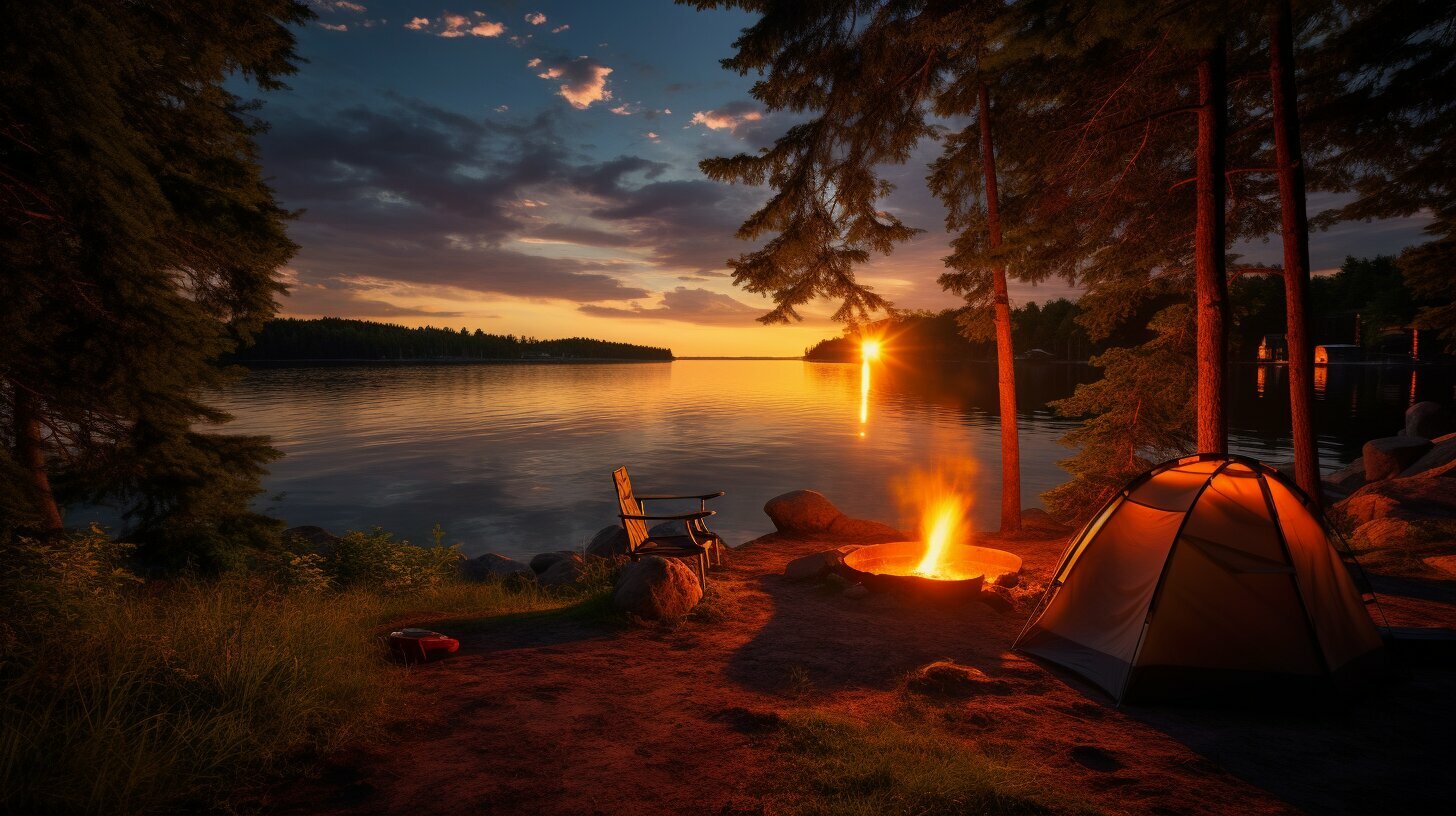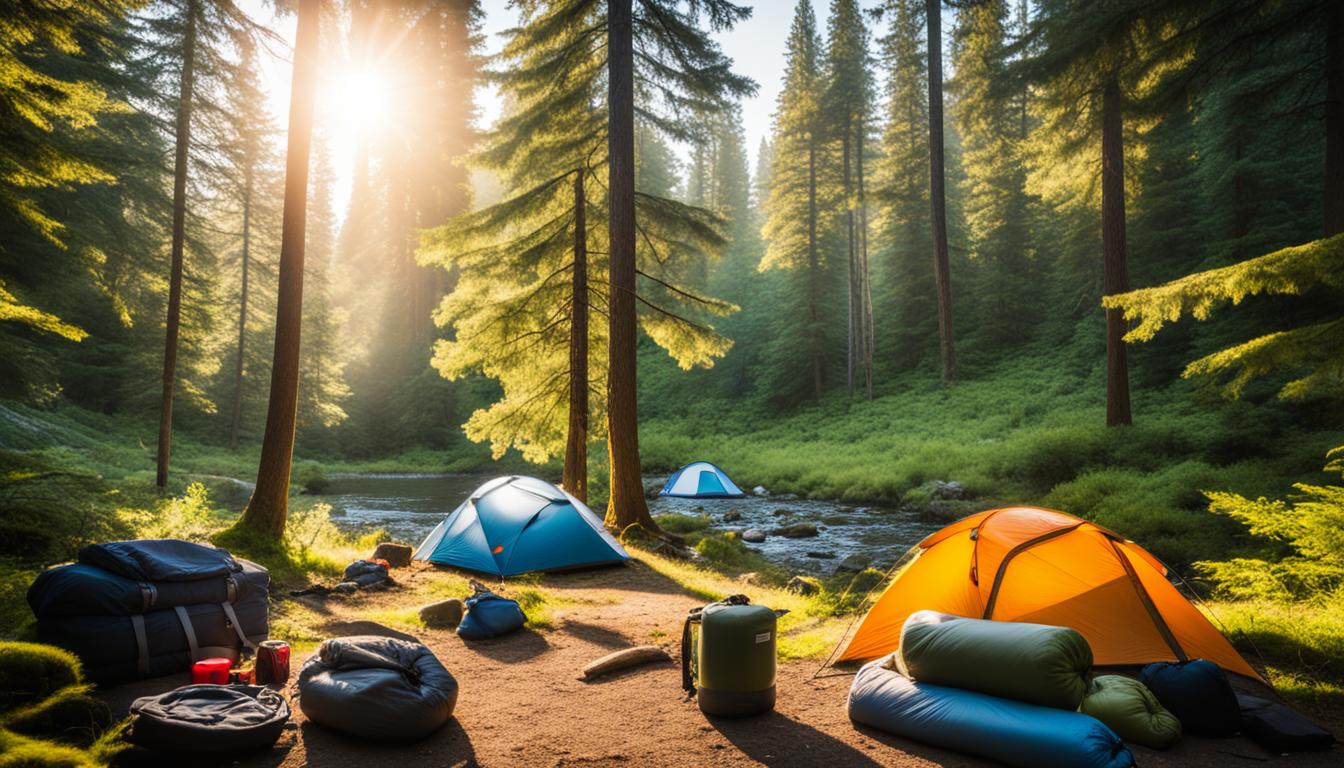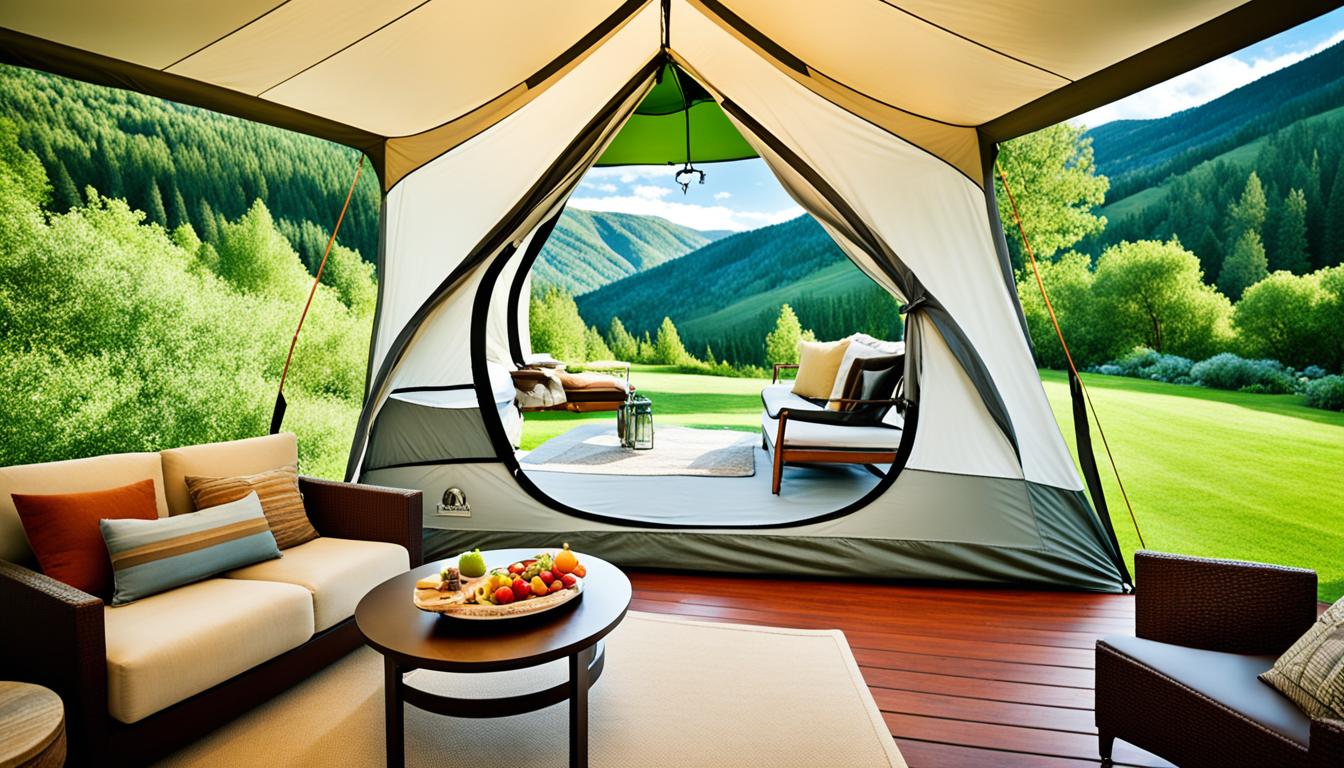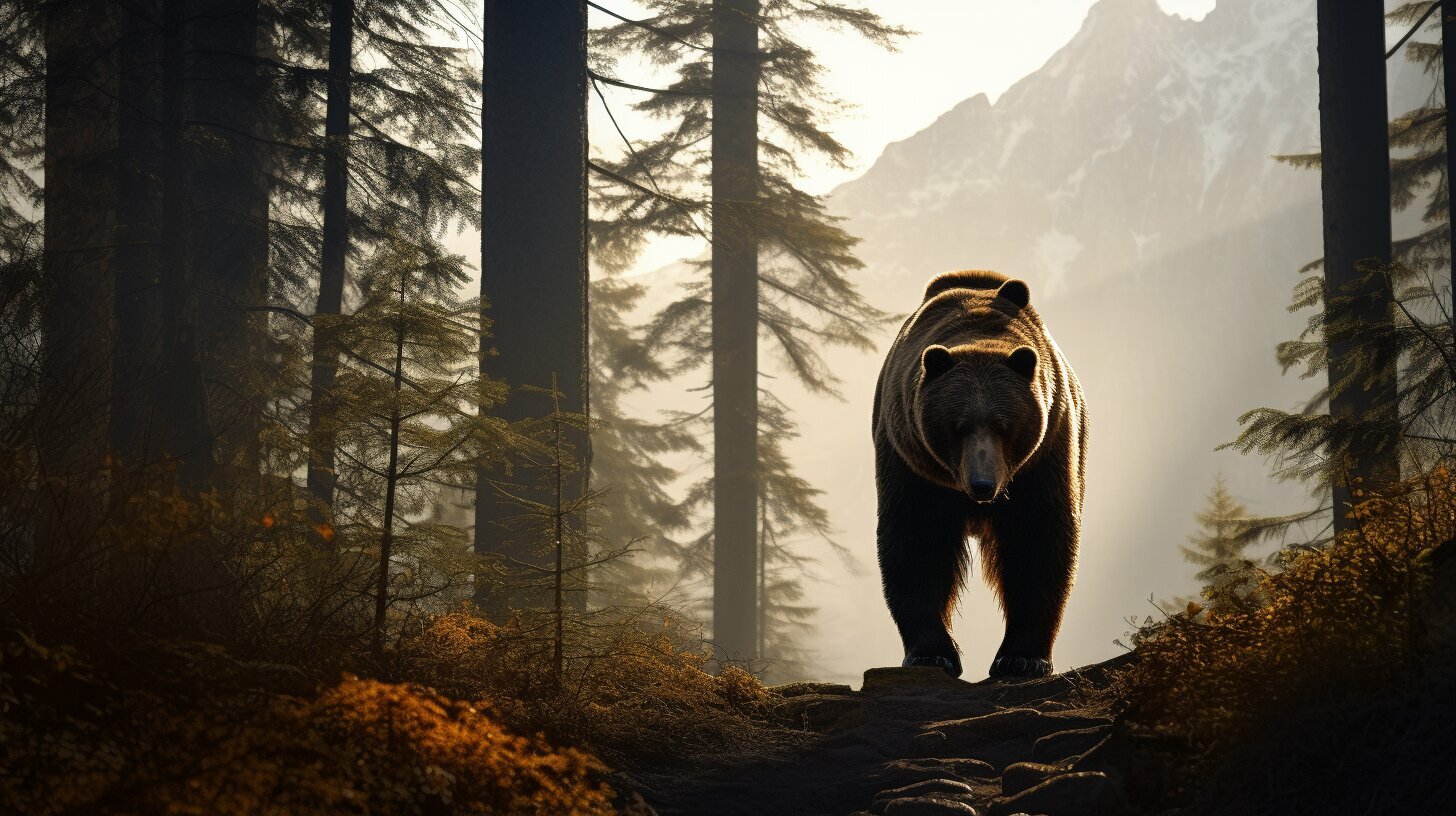Are you looking for a way to escape the hustle and bustle of modern life and connect with nature? Off the grid camping may be just what you need. This unique form of camping allows you to unplug from the world and immerse yourself in the beauty of the natural world. Instead of relying on modern amenities, off the grid camping requires self-sufficiency and a willingness to embrace a simpler way of life.
From finding your own food and water to building a sustainable campsite, off the grid camping offers a chance to disconnect from the distractions of everyday life and reconnect with the world around you.
Key Takeaways
- Off the grid camping is a unique form of camping that emphasizes self-sufficiency and disconnecting from modern amenities.
- This type of camping allows you to immerse yourself in nature and live a simpler way of life.
- You will need to be prepared to find your own food and water and build a sustainable campsite.
- Off the grid camping offers a chance to disconnect from the distractions of everyday life and reconnect with the natural world.
What is Off The Grid Camping?
If you’re looking for a way to unplug from the world and truly connect with nature, off the grid camping might be just what you need. This form of camping is all about self-sufficiency and independence, focusing on living without modern amenities and enjoying the beauty of remote locations.
Off the grid camping is all about getting away from the noise and distractions of everyday life. It’s about finding peace and tranquility in natural surroundings, where you can truly disconnect and live in harmony with the environment.
Disclosure: When you buy through links on our site, we may earn an affiliate commission.
Off the grid camping requires a bit of planning and preparation, as you’ll need to bring your own supplies and be self-sufficient in terms of food, water, and shelter. But the rewards are well worth it, as you’ll experience a sense of freedom and adventure that’s hard to find anywhere else.
If you’re looking for a true escape from the modern world, off the grid camping might just be the answer. So pack your bags, leave the electronics behind, and get ready to reconnect with nature in a way that few people ever do.
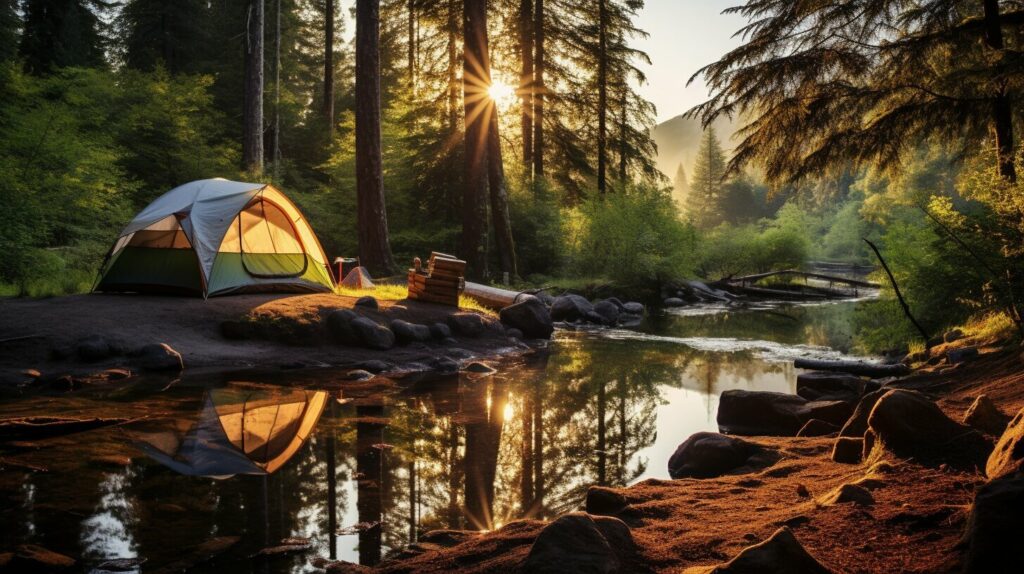
Off the grid camping is a way to escape from the noise and distractions of everyday life and find peace in natural surroundings. It’s all about self-sufficiency and independence, living without modern amenities and enjoying the beauty of remote locations.
Whether you’re looking to disconnect for a weekend or explore a new way of living, off the grid camping offers a unique and rewarding experience that’s hard to find anywhere else. So why not give it a try and discover the beauty of living off the grid?
Choosing the Right Location for Off The Grid Camping
When it comes to off the grid camping, one of the most important considerations is choosing the right location. While there are many options available, some factors to consider include:
- The wilderness factor: If you’re looking for a truly remote experience, wilderness camping may be the way to go. This type of camping involves venturing into areas that are not highly developed, which means you’ll have to bring all of your own gear and supplies. However, the tradeoff is the chance to enjoy unparalleled peace and quiet in nature.
- Remote camping: Similarly, remote camping offers a chance to escape the crowds and noise of more developed areas. This type of camping can still be accessed by car or other means of transportation, but it’s often located in more remote areas that are less familiar to most people.
- Location, location, location: Finally, when selecting a camping spot, consider what type of natural surroundings you most enjoy. Do you prefer mountainous views, seaside vistas, or lush forests? Get clear on what type of environment you want to be immersed in and look for locations that match that description.
Ultimately, the best location for off the grid camping is one that aligns with your preferences and goals. Whether you’re looking for complete isolation or just a chance to enjoy the beauty of nature, there’s a camping spot out there for you.
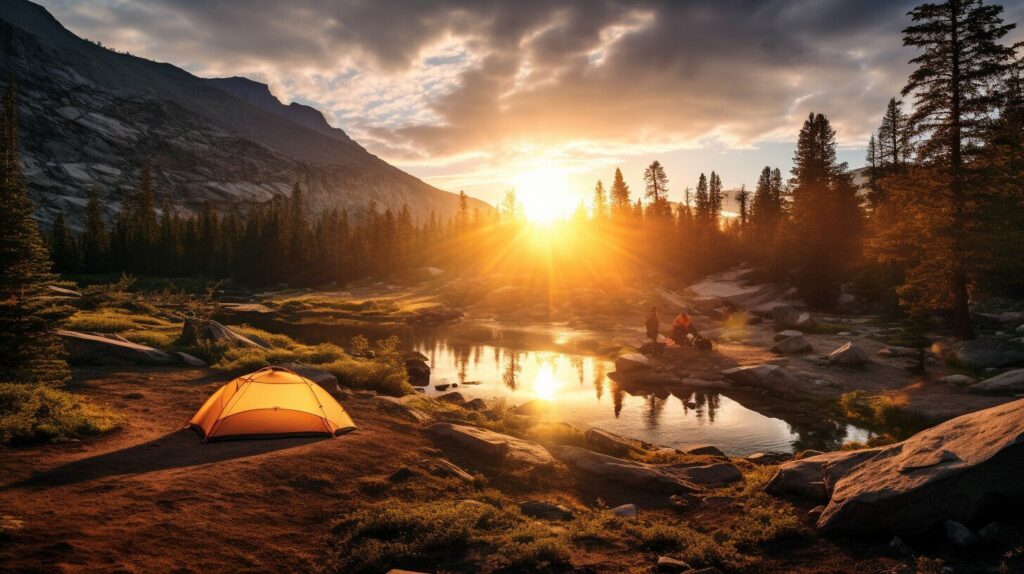
Essential Gear and Equipment for Off The Grid Camping
When it comes to off the grid camping, being self-sufficient is key. This means choosing eco-friendly and sustainable gear that will not only make your camping experience more enjoyable, but also help to preserve the environment.
Here are some essential items to consider for your off the grid camping adventure:
| Item | Description |
|---|---|
| Solar-powered charger | Keep your devices charged without relying on electricity from the grid. |
| Water filtration system | Ensure a clean water source for drinking and cooking. |
| Tent with a low environmental impact | Choose a tent made from sustainable materials that won’t harm the environment. |
| Camp stove with fuel-efficient capabilities | Cook your meals while minimizing your impact on the environment. |
| Reusable water bottles and food containers | Reduce waste and your impact on the environment by using reusable containers. |
By choosing gear and equipment that is eco-friendly and sustainable, you’re not only making your camping experience more enjoyable, but also doing your part to protect the environment.
Building a Self-Sufficient Campsite
Self-sufficiency is a key aspect of off the grid camping, allowing you to live independently and minimize your impact on the environment. To build a self-sufficient campsite, you need to consider several factors:
- Water: You’ll need a reliable water source, which may involve collecting rainwater or filtering water from a nearby stream or lake. Look for eco-friendly water filtration systems that don’t rely on chemicals or electricity.
- Food: Bring or forage for non-perishable foods like dried fruits and nuts, or learn to catch fish and game in the wild. Consider investing in low impact camping gear like reusable containers and utensils to minimize waste.
- Energy: Solar-powered devices like lanterns and chargers can provide energy without relying on the grid. You can also use firewood for heat and cooking, but be sure to follow established fire safety guidelines and regulations.
- Shelter: A sturdy, lightweight tent or shelter is essential for off the grid camping, but look for low impact options like tents made from sustainable materials.
- Navigation: Maps, compasses, and GPS devices can help you navigate remote areas and stay safe.
With these factors in mind, you can create a self-sufficient campsite that allows you to live off the grid comfortably and responsibly.
Low Impact Camping
One of the primary goals of off the grid camping is minimizing your impact on the environment. Consider low impact camping techniques like:
- Avoiding single-use plastics and disposable items
- Sticking to established trails and campsites to avoid damaging plants and wildlife
- Using non-toxic, biodegradable cleaning supplies and personal care products
- Reducing noise and light pollution to minimize disturbance to wildlife and other campers
By embracing low impact camping, you can enjoy the beauty of nature while preserving it for future generations.
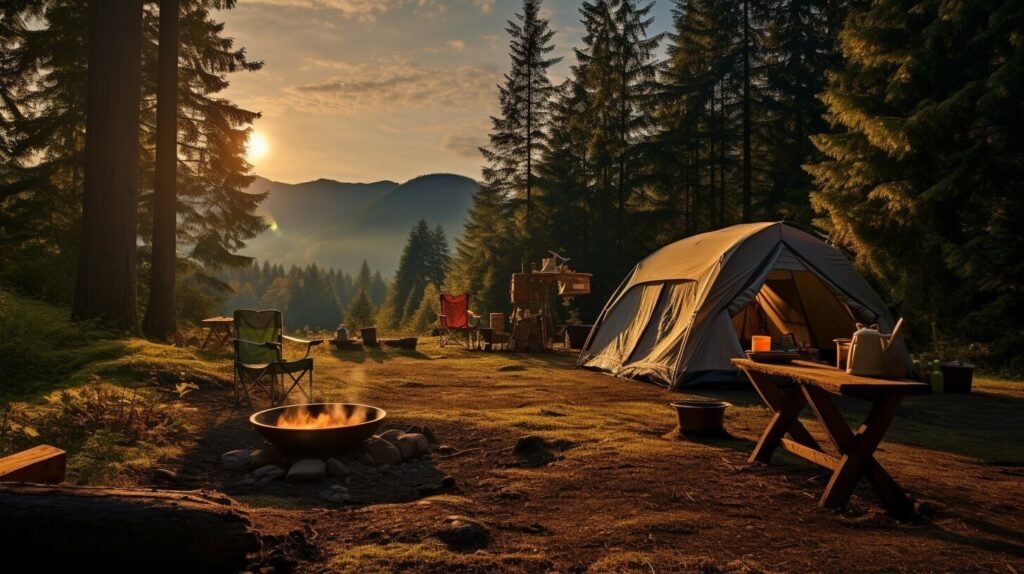
Campfire Cuisine in the Great Outdoors
Off the grid camping offers a chance to embrace a simpler way of life, including cooking and food preservation. Rustic cooking techniques such as campfire cooking can be a rewarding and enjoyable experience. When it comes to food preservation, there are a few options for off the grid camping:
- Canning: This traditional method involves sealing food in jars and sterilizing them for long-term preservation. It’s a great way to store fruits, vegetables, and even meat without refrigeration.
- Drying: Dehydrating food is a simple and effective way to preserve fruits, vegetables, and meats. You can use a solar dehydrator or simply hang food in the sun to dry.
- Smoking: Smoking is a traditional technique that adds flavor and extends the shelf life of meats. You can build your own smokehouse or use a portable smoker for off the grid camping.
When preparing meals, it’s important to consider the low impact of your cooking on the environment. Use eco-friendly camping stoves or build a campfire in a designated fire pit to minimize your impact on the surrounding area. Bring reusable containers and utensils to reduce waste and pack out any trash.
Don’t forget to enjoy the simple pleasures of rustic cooking and dining in nature. Whether it’s roasting marshmallows over the campfire or sharing a meal with friends and family under the stars, off the grid camping offers a unique and rewarding experience.
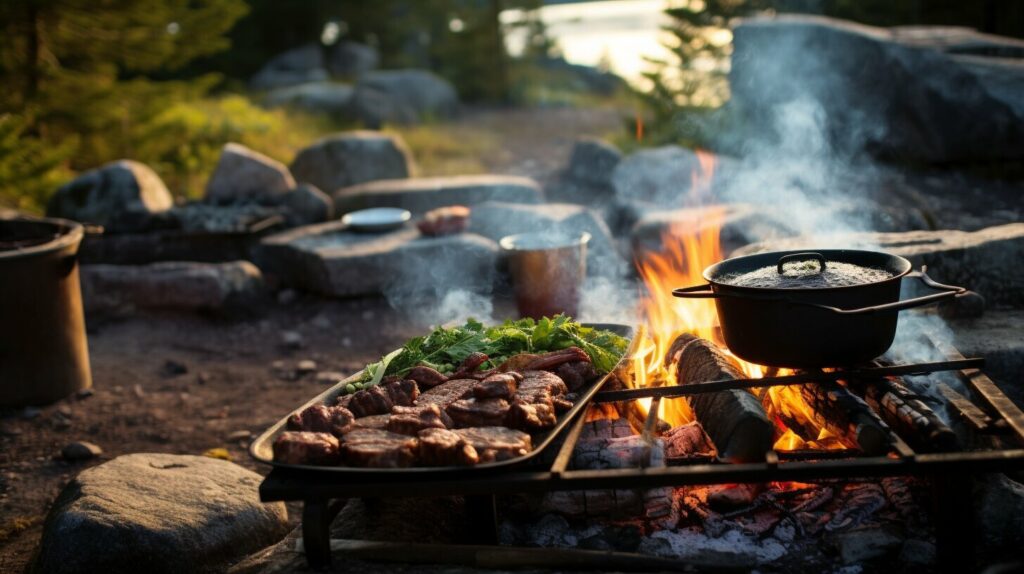
Connecting with Nature: Activities and Recreation
One of the biggest draws of off the grid camping is the chance to connect with nature, and there’s no shortage of ways to do just that. Whether you’re looking for a peaceful hike through the woods or a heart-pumping adventure, there’s something for everyone. Some popular activities for nature camping include:
- Hiking trails through forests, over mountains, and around lakes and rivers.
- Fishing for trout, bass, and other freshwater species, often in secluded, untouched locations.
- Wildlife observation, with chances to see deer, birds, bears, and other animals in their natural habitat.
- Climbing, either with ropes and harnesses or bouldering, for breathtaking views and a serious challenge.
Other fun activities for nature camping include kayaking, canoeing, and paddleboarding on pristine lakes or quiet rivers. You could even try geocaching, a high-tech treasure hunt that takes you to undiscovered corners of nature.
Whatever activities you choose, remember to follow Leave No Trace principles and respect the natural environment. Be mindful of wildlife and avoid disturbing them, and pack out everything you bring in, including food scraps and toiletries. By doing so, you’ll help preserve the beauty and serenity of these natural spaces for generations to come.
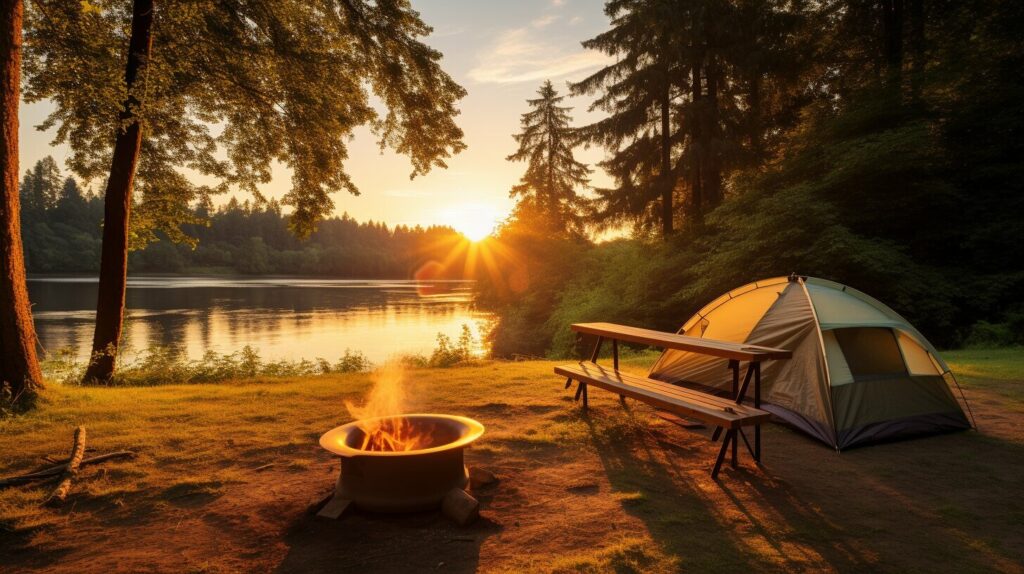
“In every walk with nature, one receives far more than he seeks.” – John Muir
Safety Considerations for Off The Grid Camping
Off the grid camping can be an amazing experience, but it’s important to prioritize safety when venturing into remote areas. Here are some key considerations to keep in mind:
| Consideration | Action |
|---|---|
| Emergency Preparedness | Make sure to pack a first-aid kit and familiarize yourself with basic wilderness survival skills. It’s also a good idea to bring a satellite phone or emergency beacon in case of a medical emergency. |
| Navigation | Always bring a compass and topographical map, and make sure you know how to use them. GPS devices can be helpful, but be sure to have a backup plan in case of device failure. |
| Wildlife Encounters | Keep a safe distance from animals and research the area’s wildlife beforehand to know what to expect. Store food securely and dispose of waste properly to avoid attracting animals to your campsite. |
| Leave No Trace | Minimize your impact by following the principles of Leave No Trace. This includes packing out all trash, avoiding fire scars, and respecting wildlife and vegetation. |
By taking these precautions, you can ensure a safe and enjoyable off the grid camping experience. Remember to always prioritize your safety and be prepared for any situation that may arise.
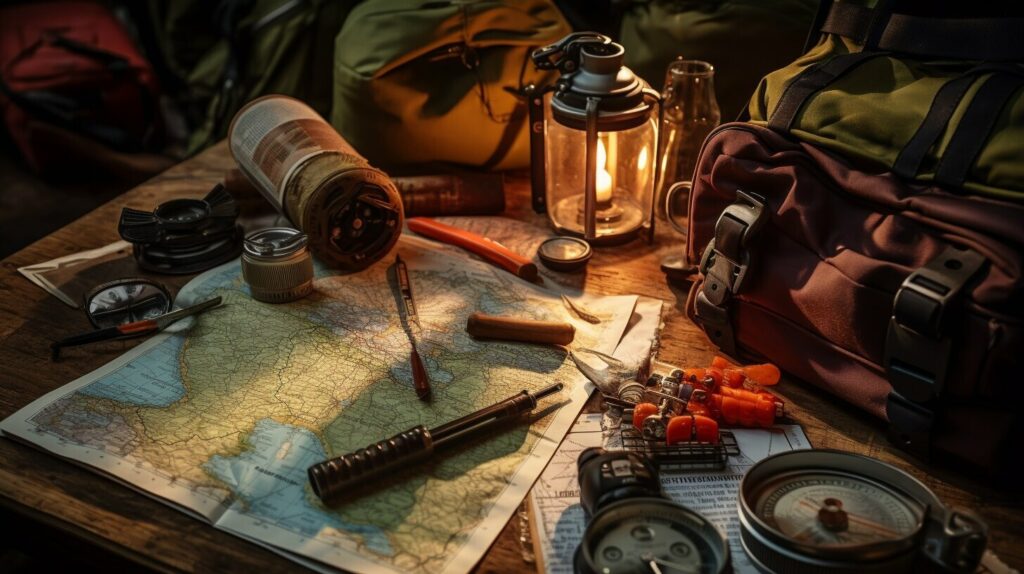
Tips for Off the Grid Camping
Off the grid camping can be a truly rewarding experience, but it requires a bit of preparation and a willingness to embrace a simpler way of life. Here are some tips to help you have a successful off the grid camping adventure:
- Plan ahead: Research your destination, bring appropriate gear, and prepare for the unexpected with extra food, water, and emergency supplies.
- Disconnect: Embrace the opportunity to unplug from technology and distractions, and enjoy the peace and quiet of nature.
- Be flexible: Nature can be unpredictable, so be willing to adjust your plans as needed. Have a plan B in case of bad weather or unexpected obstacles.
- Leave no trace: Practice low impact camping by disposing of waste properly, respecting wildlife and other campers, and leaving your campsite better than you found it.
- Embrace the simplicity: Off the grid camping offers a chance to simplify your life and focus on the essentials. Enjoy the simplicity of cooking over a campfire and the freedom of not being tied to modern conveniences.
By following these tips, you can have a truly immersive and fulfilling off the grid camping experience.
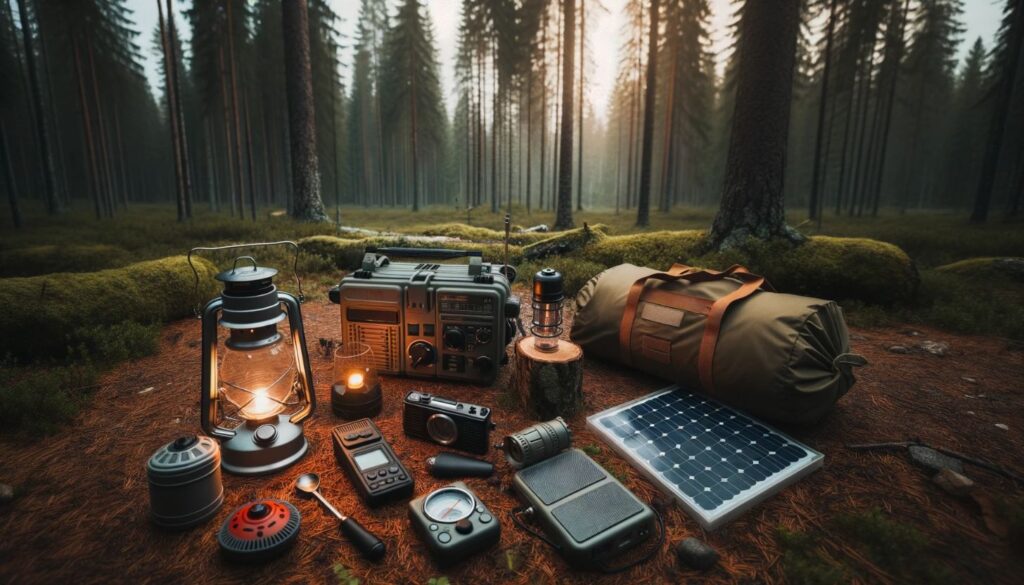
Embracing Off the Grid Living
Off the grid camping can be a stepping stone towards a more self-sufficient, sustainable, and connected lifestyle. Many people who have experienced the freedom and simplicity of unplugging from modern amenities and living in nature have found it to be a transformative experience.
If you’re interested in embracing the off the grid lifestyle beyond camping, there are many resources available to help you get started. You can find information on topics such as alternative energy sources, farming and agriculture, sustainable living, and more.
One way to transition into this lifestyle is to start small and focus on making incremental changes. For example, you might begin by reducing your energy consumption, growing some of your own food, or exploring alternative modes of transportation.
It’s important to remember that off the grid living is not for everyone, and it requires a certain level of commitment and dedication. However, for those who are willing to embrace the challenge and the rewards, it can be a deeply fulfilling and enriching way of life.
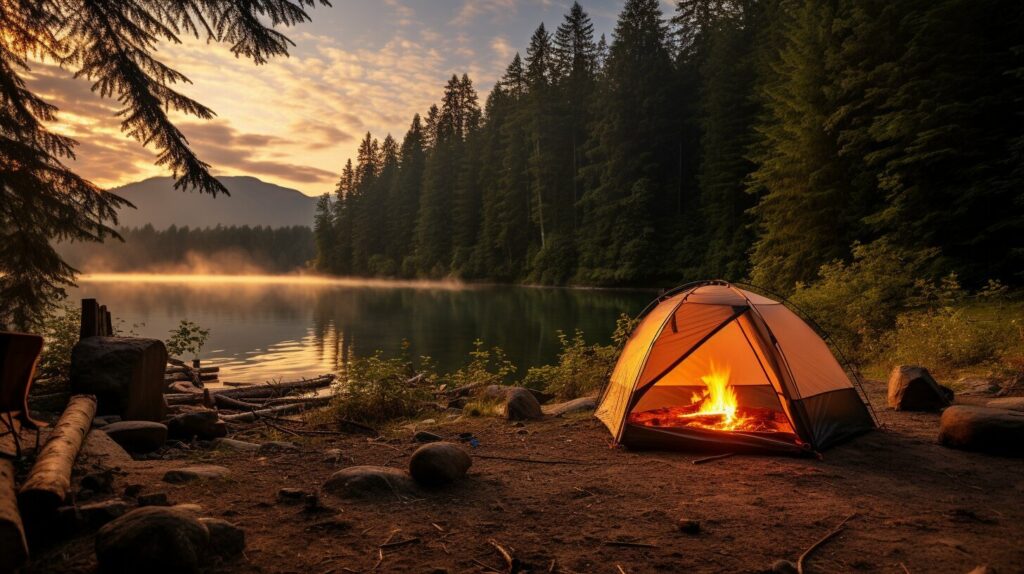
As you continue to explore the possibilities of off the grid living, remember to stay open-minded and curious. There is always something new to learn and discover, and the journey itself can be just as rewarding as the destination.
Conclusion
Off the grid camping offers a unique and rewarding way to disconnect from modern life and reconnect with nature. By choosing remote and wilderness locations, embracing self-sufficiency, and using sustainable gear and equipment, you can experience a simpler, more fulfilling way of life.
Whether you’re seeking solitude, adventure, or simply a break from the everyday, off the grid camping has something to offer. With careful planning and preparation, you can enjoy all that nature has to offer while minimizing your impact on the environment.
So why not give off the grid camping a try? Embrace the challenge of living independently in the wilderness, and discover the beauty and tranquility of nature on your own terms. Who knows, you may just find that it becomes a way of life.
FAQ
What is off the grid camping?
Off the grid camping refers to a style of camping where individuals disconnect from modern amenities and live independently in remote locations. It involves self-sufficiency and a focus on reconnecting with nature.
How do I choose the right location for off the grid camping?
When selecting a location for off the grid camping, consider factors such as wilderness areas, remote spots, and natural surroundings. Look for places that offer tranquility and isolation to truly immerse yourself in the experience.
What gear and equipment do I need for off the grid camping?
Essential gear for off the grid camping includes eco-friendly and sustainable options, such as solar-powered devices, water filtration systems, and low impact camping gear. These will help you minimize your environmental impact and live self-sufficiently.
How can I build a self-sufficient campsite?
Building a self-sufficient campsite involves techniques for gathering food, sourcing water, and minimizing environmental impact. It requires planning and preparation to ensure you have the necessary resources to sustain yourself during your camping trip.
What cooking techniques and food preservation methods are suitable for off the grid camping?
Off the grid camping allows for rustic cooking methods, such as campfire cooking, and food preservation techniques that don’t rely on refrigeration. Embrace the simplicity and charm of preparing meals in nature while enjoying the freshest ingredients.
What activities and recreation opportunities are available in off the grid camping?
Off the grid camping provides a chance to connect with nature through activities like hiking, fishing, wildlife observation, and other outdoor pursuits. Explore the beauty of the natural surroundings and immerse yourself in the serenity of the wilderness.
What safety considerations should I keep in mind for off the grid camping?
Safety is crucial when participating in off the grid camping. Be prepared for emergencies, navigate with care, and understand the potential wildlife encounters you may encounter. Always prioritize leaving no trace and respecting the environment.
What tips can you provide for a successful off the grid camping experience?
Plan and prepare adequately, embrace the simplicity of off the grid living, and be open to the freedom it offers. Approach the experience with a positive mindset and enjoy the opportunity to disconnect from the world and reconnect with nature.
How can off the grid camping be a stepping stone towards embracing the off the grid lifestyle?
Off the grid camping can serve as a gateway to living a more self-sufficient, sustainable, and connected life. It allows you to experience the benefits of being off the grid and may inspire you to explore further into this unique lifestyle.

